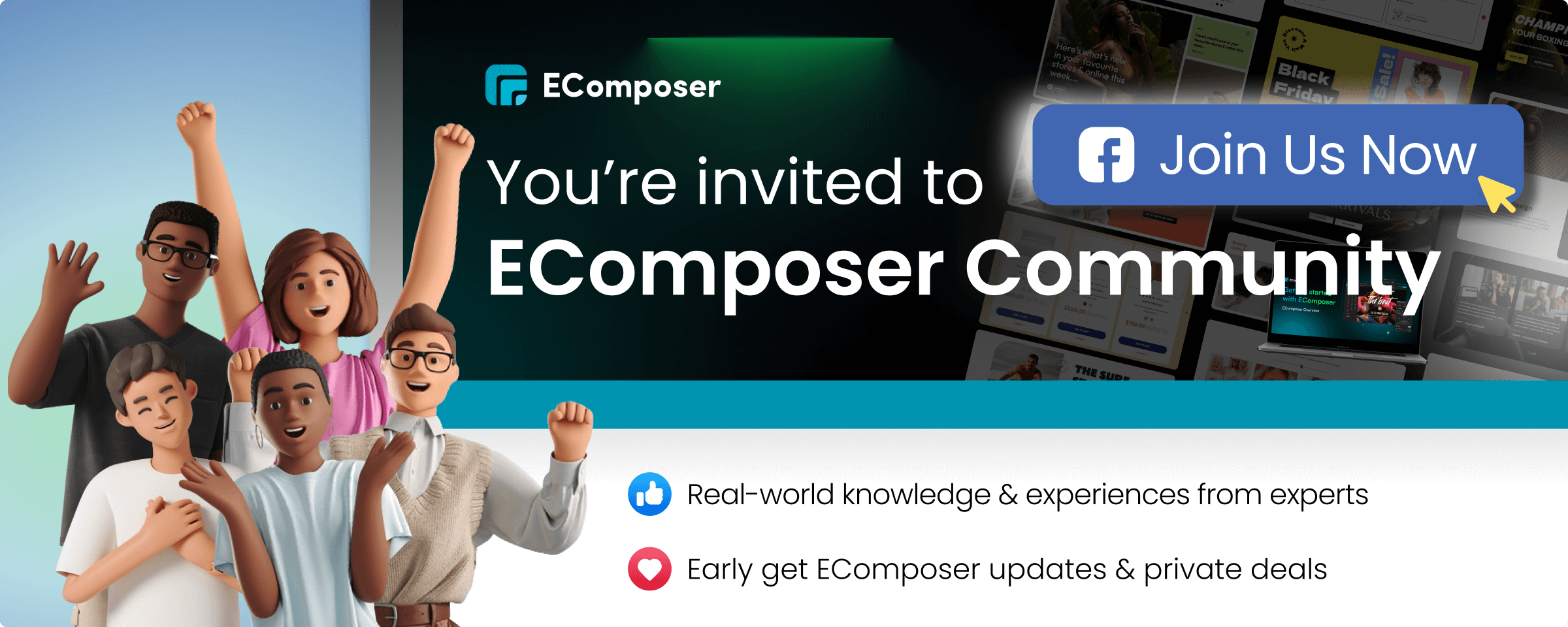Advantages and Disadvantages of Social Media for Business

Table Of Contents
Social media is a powerful force, reshaping how businesses connect, communicate, and grow. From establishing a strong online presence to driving direct interaction with a global audience, the role of social media in marketing is undeniable and transformative.
In this blog, we will explore the advantages and disadvantages of social media for businesses. From the ability to build genuine connections with audiences to the potential pitfalls that can damage our social fabric, we'll dive into the complexities of leveraging social media like A double-edged sword in business.
Buckle up as we navigate the complex terrain of tweets, posts, likes, and shares.
What is Social Media?

Social media, a collective term encompassing websites and applications, centers around communication, community-based input, interaction, content-sharing, and collaboration.
Individuals leverage social media to stay connected, engaging with friends, family, and diverse communities. Concurrently, businesses harness social applications to promote and market their products while monitoring customer concerns.
Social components, such as user comment fields, play a pivotal role in business-to-consumer websites. Businesses utilize various tools to monitor, measure, and analyze their social media presence, including factors like brand perception and customer insights.
What is the role of Social Media in marketing?
Social media plays a pivotal role in modern marketing, serving as a dynamic and influential platform for businesses to connect with their audience, build brand awareness, and drive engagement. Here are key aspects of the role of social media in marketing:
- Sharing Engaging Content: Social media platforms are not just arenas for information; they are stages for storytelling. Businesses can seize the opportunity to share captivating content that resonates with their target audience. Whether it's insightful articles, entertaining videos, or eye-catching visuals, engaging content sparks brand awareness, kindles active participation, and cultivates enduring customer loyalty.
- Humanizing the Brand: Behind every logo and product is a story waiting to be told. Social media provides a platform for businesses to showcase the human side of their brand. Businesses can bridge the gap between the corporate entity and the individual consumer through behind-the-scenes glimpses, candid photos, and heartfelt stories. This humanization fosters a more profound connection, allowing the audience to relate to the brand personally.
- Encouraging User-Generated Content: In social media, consumers aren't just spectators; they are active contributors. Businesses unlock a powerful tool: user-generated content by creating a designated hashtag and encouraging customers to share their experiences. This content serves as a testament to the brand's impact, building social proof and fortifying the brand's standing in the eyes of existing and potential customers.
Advantages of Social Media for Business

As we delve deeper into social media for businesses, it becomes evident that the advantages are multifaceted, offering many opportunities for growth, engagement, and brand development:
Connect with Lots of People
The sheer magnitude of users on social media platforms provides an unparalleled opportunity for businesses to connect with a vast audience. Platforms like YouTube, Facebook, Instagram, and others boast millions of active users, allowing businesses to tap into a substantial pool of potential customers.
Talk Directly with Your Followers
Social media is a unique marketing strategy that fosters a direct connection with your audience. Knowing and understanding your social media followers allows you to tailor content to their interests, enhance customer service, gain valuable insights, and shape how your business is perceived.
This personal touch goes beyond traditional marketing, creating a more authentic and interactive relationship with your customer base.
Make Real and Natural Content
The ability to post organic content for free is a standout benefit of social media for businesses. This feature allows companies to connect with valuable leads at no cost. Whether through images, videos, or text, businesses can share their brand story, engage with their audience, and increase familiarity with their offerings.
Use Ads to Reach More People
Social media's benefits extend beyond organic reach, allowing businesses to leverage paid advertising services. Each platform provides its form of paid advertising, allowing businesses to tailor ads to specific demographics. This targeted approach enhances the chances of reaching interested leads, expanding a business's reach, and driving new conversions.
Build and Make Your Brand Strong
Social media emerges as a powerful tool for brand building. Through consistent exposure to engaging content, businesses can foster brand loyalty.
The ability to share, retweet, and re-pin content enables followers to introduce the brand to their networks, exponentially expanding brand recognition. This familiarity increases conversions, as customers tend to gravitate toward well-known brands.
Send People to Your Website
Social media catalyzes directing traffic to your business's website. With the opportunity to share content containing links, businesses can entice their audience to explore their websites, learn more about products and services, and make purchases. This seamless connection between social media and websites enhances brand exposure and engagement.
Check and Get Better at Your Work
Social media platforms provide robust metrics to help businesses assess the performance of their marketing campaigns. From post visibility to user engagement and advertising metrics, businesses can gain valuable insights into the effectiveness of their social media strategies. This data-driven approach allows for optimization, ensuring continual improvement in driving valuable results.
Join Social Media for Free
One of the standout advantages is the accessibility of social media networks at no cost. The absence of signup fees eliminates financial barriers, making it a viable marketing channel for businesses of all sizes. While paid advertising options exist, businesses can harness the power of social media's organic reach without mandatory financial investments.
Make Content Everyone Shares
The unique ability of social media content to go viral sets it apart from traditional marketing avenues. The interconnected nature of followers sharing content can lead to a cascading effect, extending a business's reach far beyond its initial audience. This viral potential creates a cost-effective way to amplify brand visibility and engagement.
Learn Important Things from Social Media
Social media's analytical tools allow businesses to gather valuable customer information. Through social listening and data analysis, businesses can understand customer sentiments, discover conversations about their brand, and answer questions about their offerings. This wealth of information empowers businesses to make informed decisions and adapt their strategies to meet customer needs.
Disadvantages of Social Media for Business

As we explore the advantages of social media for businesses, it's crucial to acknowledge the potential drawbacks that come hand-in-hand with these digital platforms. Understanding and addressing these challenges is key to fostering a healthy and effective online presence.
Time-Consuming
Managing social media demands consistent engagement, from content creation to community interaction. This commitment often diverts attention from other core business activities. It requires scheduling, posting, and engaging with the audience in real time. Juggling these demands can strain resources, impacting overall productivity and efficiency. Additionally, staying updated with trends and algorithm changes necessitates continuous learning, further consuming time.
Negative Feedback
Negative comments or reviews on social media can quickly escalate, potentially damaging the brand's reputation. Addressing these issues effectively demands a delicate balance between acknowledging concerns and mitigating public backlash. This task can be intricate, as responses must be timely, respectful, and proactive. Managing negative feedback often requires significant effort to regain customer trust and prevent long-term repercussions.
Dependence on Algorithms
Social media platforms frequently update their algorithms, affecting content visibility. Such changes can drastically reduce organic reach, impacting a business's ability to connect with its audience. Navigating these algorithm shifts demands constant adaptation of strategies, requiring meticulous monitoring, testing, and content adjustment to maintain visibility.
Overwhelming and Noise
The saturation of social media with an abundance of content creates a fiercely competitive environment. Businesses need help to cut through the noise and capture the audience's attention. Standing out amidst the influx of information necessitates creativity, uniqueness, and consistent engagement. Achieving visibility amid the overwhelming content requires innovative strategies and resource-intensive campaigns.
Privacy Concerns
Using user data for targeted marketing is riddled with privacy concerns. Adhering to data privacy regulations while effectively utilizing customer data for personalized marketing requires a delicate balance. Mishandling or breaching user privacy can result in legal consequences and significant reputation damage, underscoring the importance of stringent data security measures.
ROI Uncertainty
Measuring the precise return on investment for social media efforts poses a challenge. Determining the direct impact of social media on sales or conversions often involves complex attribution models. Attribution across multiple touchpoints and accurately quantifying the impact of social media interactions on conversions still need to be discovered, causing uncertainty in assessing the real ROI of social media marketing efforts.
Top 4 Best Popular Types of Social Media
Here are the top four categories that encapsulate the most popular types of social media:
1. Social Networks
Social networks form the cornerstone of online connectivity, emphasizing user interaction and information sharing. Users create profiles that serve as digital representations, connecting with others who share common interests or concerns. For example, Facebook, with its expansive user base, facilitates personal connections, while LinkedIn focuses on professional networking.
2. Media-sharing Networks
Media-sharing networks revolve around content creation and consumption. Platforms like YouTube enable users to share and engage with videos, while TikTok and Instagram specialize in short-form visual content. Streaming platforms like Twitch, a subset of this category, provide a live and interactive space for content creators, often centered around gaming and other creative pursuits.
3. Review Board Networks
Review board networks center their attention on evaluating and endorsing products or services. Users contribute reviews, offering insights into their experiences, and can endorse each other's thoughts to enhance visibility. Yelp, known for restaurant reviews, exemplifies this type, creating a platform where user-generated reviews shape opinions and guide choices.
4. Community-based Networks
Community-based networks prioritize in-depth discussions, resembling digital forums or blog platforms. Users initiate conversations through prompts, leading to detailed comment threads. Communities coalesce around specific topics of interest, fostering a sense of belonging and expertise-sharing.
An excellent example of this is the Shopify Community. This community has many categories that help businesses find content for building a store and doing business. To join this community, businesses need a Shopify account. Businesses can open a Shopify store for just 1 dollar for 3 months.
7 Key Ways Social Media Influences Our World

Social media's influence permeates various aspects of our lives, contributing positively and negatively to our society, politics, commerce, work environment, education, and mental health. Here, we delve into the multifaceted impact, exploring the intricacies of its role in shaping contemporary interactions.
1. How Social Media Affects Politics
Social media have profoundly transformed the landscape of political engagement. A study by Pew Research reveals that a significant portion of U.S. adults rely on these platforms for political news.
However, concerns arise regarding the potential for misinformation, as those primarily using social media tend to be less well-informed and exposed to unproven claims. The pivotal role of social networks in political campaigns has surged, reshaping global societies.
2. How Social Media Shapes Society
The staggering presence of almost a quarter of the world's population on Facebook underscores the societal impact of social media. It catalyzes collective action, allowing individuals with marginal views to find like-minded communities.
The increased visibility of social, ethical, environmental, and political issues has shifted power dynamics from a few entities to the masses. Yet, questions persist about the depth of social media activism and the rise of “slacktivism”
3. How Social Media Influences Commerce
The rise of social media has made it a rarity for organizations to refrain from engaging with customers through these platforms. Businesses leverage social media for customer interaction, revenue generation, and targeted product offerings.
However, the double-edged nature of social sharing is evident; while high shares can reinforce sales, a low number can lead to negative social proof, eroding trust in products and companies.
4. How Social Media Impacts the Workplace
Recruitment and hiring practices have been revolutionized by social media, especially professional networks like LinkedIn. Employers increasingly base hiring decisions on information obtained from social media. The comprehensive integration of social technologies within workplaces enhances knowledge sharing, breaks down silos, and fosters more skilled and knowledgeable workers.
5. How Social Media Shapes Training and Development
Social media skills have become valuable assets for job seekers. The 'new normal' in high school includes the belief that social media is a valuable tool for learning. Blogs, wikis, LinkedIn, Twitter, Facebook, and podcasts have become standard educational tools, contributing to the rise of long-distance online learning despite privacy concerns and instances of cheating.
6. Downsides of Social Media
The darker side of social media manifests in mental health issues, such as depression, self-harm, anxiety, and loneliness, linked to heavy usage. The fear of missing out (FOMO) and cyberbullying add layers of complexity, impacting adolescents pressured to conform to online societal norms. Lack of privacy poses threats like stalking and identity theft, with content deletion often coming too late.
7. How Social Media Shapes Relationships
Social media has redefined relationships, fostering 'social media friendships' that may lack the depth of traditional connections. In the digital realm, 'friend' often represents a weaker shadow of genuine friendship. Real friends, grounded in personal bonds, frequently interact face-to-face, challenging the authenticity of virtual connections.
Bonus: How to Create a Social Share Button in Your Shopify Store
Shopify Social Share buttons are compact icons integrated into websites, enabling users to easily share posts or products directly to their preferred social media channels.
These buttons streamline the creation and dissemination of information, ideas, interests, and various forms of expression across a virtual network. For example, on your retail website, you might find icons for sharing on Facebook, Instagram, Twitter, and even through your store's email address.

Shopify allows you to create social share buttons, but it needs to be eye-catching and attract customers. In this section, we would like to introduce the Social Share element of EComposer Landing page builder. This feature lets you create Social Share buttons with many designs and colors.
All details are in the blog: How to Add Shopify Social Share Button. This blog will provide comprehensive instructions on creating a unique Social Share Button.
Final Thoughts
The social media landscape for business is dynamic, with advantages and disadvantages. Leveraging these platforms can significantly enhance brand visibility, foster customer engagement, and drive traffic to your website. The ability to reach large audiences, establish a direct connection with your target market, and create organic content are powerful business tools.
However, it's crucial to navigate the potential pitfalls. From mental health concerns to the spread of disinformation and security issues, businesses must tread carefully. Striking a balance between harnessing the benefits and mitigating the drawbacks is essential for a successful social media strategy.



















0 comments